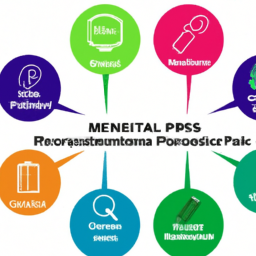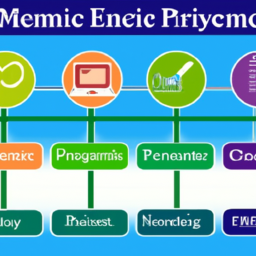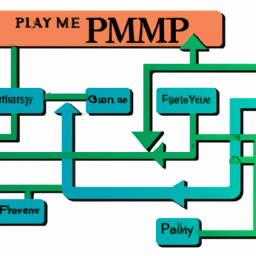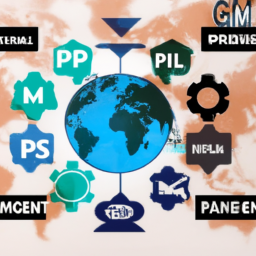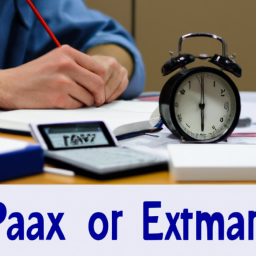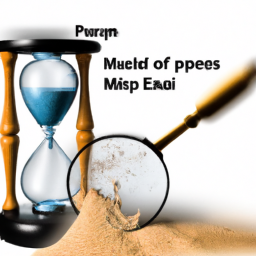Are you considering a project management certification?
Did you know that the Project Management Professional (PMP) exam is the most widely recognized certification in the field?
With over 1 million certified professionals worldwide, the PMP exam holds a significant advantage over other project management certifications.
In this detailed comparison, we will explore the key differences between the PMP exam and other certifications, including exam format, eligibility criteria, industry recognition, career advancement, cost, and time commitment.
Let’s dive in and find the perfect certification for you.
Key Takeaways
- PMP certification is recognized worldwide and highly sought after by employers
- PMP certification offers better job prospects and abundant job opportunities
- PMP certification requires a rigorous and comprehensive approach to exam preparation
- PMP certification has a specific exam format and structure with regularly updated content
Key Differences Between PMP and Other Project Management Certifications
If you’re considering pursuing a project management certification, it’s important to understand the key differences between the PMP certification and other project management certifications.
One significant difference lies in job prospects. The PMP certification is recognized worldwide and highly sought after by employers, giving you a competitive edge in the job market. Other certifications may not have the same level of recognition, limiting your options.
Additionally, when it comes to exam preparation, the PMP certification requires a more rigorous and comprehensive approach. The exam covers a vast range of project management knowledge areas, requiring in-depth study and understanding. Other project management certifications may have more focused or specific exam content.
Therefore, if you’re aiming for better job prospects and are willing to invest time and effort in exam preparation, the PMP certification may be the right choice for you.
Exam Format and Structure: PMP Vs. Other Certifications
When preparing for your exam, it’s important to understand the format and structure of different project management certifications.
The PMP exam, for instance, follows a specific scoring system where questions are divided into five domains: initiating, planning, executing, monitoring and controlling, and closing. Each domain has a different weightage, and your score will be determined based on your performance in each domain.
It’s crucial to familiarize yourself with the exam content updates as well. The PMP exam content is regularly reviewed and updated to ensure its relevance to the evolving project management landscape. Staying up-to-date with the latest changes in the exam content will enable you to focus your preparation on the most relevant topics and increase your chances of success.
Eligibility Criteria: PMP Exam Vs. Other Project Management Certifications
Understanding the eligibility criteria for different project management certifications is essential in determining which certification is right for you.
When it comes to the Project Management Professional (PMP) certification, there are specific requirements that must be met. To be eligible for the PMP exam, you need to have a minimum of 4,500 hours of project management experience if you hold a bachelor’s degree, or 7,500 hours if you have a high school diploma. Additionally, you must complete 35 hours of project management education.
On the other hand, other project management certifications may have different eligibility requirements. For example, the Certified Associate in Project Management (CAPM) certification requires a high school diploma or equivalent, and 23 hours of project management education.
It is important to carefully review the eligibility criteria for each certification to determine which one aligns with your qualifications and goals.
Industry Recognition and Career Advancement: PMP Vs. Other Certifications
Industry recognition and career advancement opportunities differ between the PMP certification and other project management certifications. While other certifications may provide some level of recognition and job opportunities, the PMP certification is widely recognized and respected in the industry, opening up doors to more lucrative and senior positions. To illustrate the difference, consider the following table:
| Certification | Industry Recognition | Job Opportunities |
|---|---|---|
| PMP | High | Abundant |
| CAPM | Moderate | Limited |
| PRINCE2 | Moderate | Limited |
As you can see, the PMP certification stands out in terms of industry recognition and job opportunities. It is the gold standard for project management professionals, giving you a competitive edge in the job market. Now, let’s delve into the cost and time commitment required for obtaining the PMP certification compared to other project management certifications.
Cost and Time Commitment: PMP Exam Vs. Other Project Management Certifications
To get a better idea of the cost and time commitment for the PMP certification compared to other certifications, let’s take a closer look at the requirements. Here is a cost comparison and time commitment analysis:
-
PMP Certification
-
Cost: The PMP certification fee is $405 for PMI members and $555 for non-members.
-
Time Commitment: On average, it takes around 6-8 weeks of dedicated study time to prepare for the PMP exam.
-
CAPM Certification
-
Cost: The CAPM certification fee is $225 for PMI members and $300 for non-members.
-
Time Commitment: It usually takes 4-6 weeks of focused study to prepare for the CAPM exam.
-
PRINCE2 Certification
-
Cost: The PRINCE2 certification fee ranges from $500 to $1,000 depending on the level.
-
Time Commitment: It typically requires 2-3 months of intensive studying to prepare for the PRINCE2 exam.
-
Agile Certification (PMI-ACP)
-
Cost: The PMI-ACP certification fee is $435 for PMI members and $495 for non-members.
-
Time Commitment: It takes approximately 3-4 months of dedicated study to prepare for the PMI-ACP exam.
Frequently Asked Questions
Are There Any Prerequisites or Experience Requirements for Taking the PMP Exam?
Before you can take the PMP exam, there are prerequisites and experience requirements that need to be met. According to the Project Management Institute (PMI), you need to have a high school diploma or equivalent, along with either 35 hours of project management education or 35 hours of contact hours of formal project management education.
In addition, you must have at least 4,500 hours of leading and directing projects if you have a bachelor’s degree, or 7,500 hours if you have a high school diploma or equivalent.
How Long Is the PMP Exam and What Is the Passing Score?
The PMP exam duration is four hours, and you need to answer 200 multiple-choice questions.
The passing score for the exam is not a fixed percentage. Instead, it is determined by a psychometric analysis process.
However, it is generally recommended to aim for a score of around 61% or higher.
This ensures that you have a good understanding of the project management concepts and can apply them effectively in real-world scenarios.
Can I Use My Project Management Certification From Another Organization to Fulfill the Eligibility Criteria for the PMP Exam?
Yes, you can use your project management certification from another organization to fulfill the eligibility criteria for the PMP exam. The Project Management Institute (PMI) recognizes and accepts a variety of non-PMP certifications as alternatives.
However, you need to ensure that your certification meets the specific requirements set by PMI. It is recommended to review the PMI’s certification handbook to understand the eligibility criteria and documentation needed for using non-PMP certifications.
What Are Some of the Industries or Sectors That Highly Value the PMP Certification?
In highly valued industries, the PMP certification is like a golden ticket that opens doors of opportunity. Companies across various sectors, from technology to construction, recognize the value of a PMP-certified professional.
The job market demand for individuals with this certification is high, as it indicates a level of expertise in project management that is respected and sought after. Having a PMP certification can give you a competitive edge and increase your chances of landing a job in these industries.
Besides the Exam Fee, What Other Costs Should I Consider When Pursuing the PMP Certification?
When pursuing the PMP certification, besides the exam fee, there are other costs that you should consider. These hidden expenses can include study materials, training courses, and membership fees to professional organizations.
Additionally, you may need to factor in travel expenses if you choose to attend in-person training sessions or the exam itself.
It’s important to budget for these costs to ensure a smooth and successful certification journey.
Conclusion
In conclusion, when comparing the PMP exam to other project management certifications, it is evident that the PMP certification stands out in terms of industry recognition and career advancement opportunities.
The rigorous eligibility criteria and comprehensive exam format ensure that PMP certified professionals are well-equipped to handle any project management challenges.
While the PMP exam may require a significant time commitment and investment, the benefits and career prospects it offers make it a worthwhile endeavor.
So, why settle for other certifications when you can aim for the gold standard and become a PMP certified professional?


